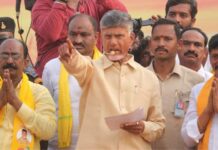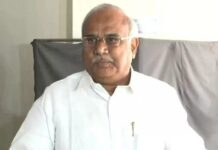
Recently lot of debate is happening in media regarding this “Jamili elections”. Some viewers are actually confused about what is this “Jamili”. While the Indian word “jamili or Zamili” means paired or coupled, the word jamili elections refer to the concept of “One nation – One elections”. Prime Minister Mr. Narendra Modi, in 2016 had given the idea of holding simultaneous elections to the Lok Sabha, Assembly and local bodies. He said that frequent elections affect the functioning of bureaucracy.
Arguments in support of Jamili elections (One India, One elections)
1. Main arguement is that, frequent elections impose a heavy burden on the exechequer.Election Commission estimates that the Lok Sabha and state polls cost around Rs.4500 crore in 2004.
2. Another arguement supporting simultaneous elections is that, frequent elections impact governance and policymaking as the government is trapped in short-term thinking instead of working for long term vision. In fact elections in Tamil Nadu, in past, dictated central government’s foriegn policy with Sri Lanka.
3. One more arguement is frequent elections and associated “Model Code of Conduct” before elections, brings normal work of the government to a standstill. Once this “code” starts, it prevents government from announcing any new schemes, making any new appointments without the approval of election commission.
So, proponents of this Jamili elections, argue – it will save public money and help governments focus on long term vision and better governance.
WHY this is a “dangerous” game.
1. First of all, constitution never says, all the elections should be held at the same time. Let’s say even if Modi government coordinates with Election commission and all states to convene elections for all the states and also union simultaneously either in 2018 or 2019, what will they do if any state government doesn’t survive full 5 years. Let’s say Jamili elections happen in India in 2018. And, in one particular state, coalition government is formed as no party could get full majority. So if that state government falls, should we wait for 5 years to convene elections or should it be convened immediately. As per constitution, within 6 months elections or president rule( “Emergency provison” of constitution is popularly called president rule) has to be held. Recent verdicts of supreme court tell, president rule provision has to be used very sparingly. So this is clear violation of constitution. If coalition government fails to survive 6 months after elections, why should people wait for 4.5 years for next elections.
2. Secondly, this is against Federal spirit envisioned in the country’s constitution. How can a union government ask state governments to resign before completion of its 5 years. For e.g. Bihar, Tamil Nadu had elections in last couple of years only they have couple of more years to rule as mandated by people. Just to have “Jamili ” elections, how can Modi government ask these states to dissolve their governments.
3. More than all these, there is a conspiracy theory doing rounds among political circles. Even though debatable, BJP or NDA has some sort of positive mood across the country at the moment. So to encash that positive mood, Modi’ government is intentionally triggering this debate on “Jamili” elections. These analysts in fact challenge Modi government to talk of Jamili elections during 2024 elections. Because, obviously they think NDA can’t sustain the positive moment till 2024 because anti-incumbency will pile up by that time and if Jamili elections happen during 2024, Modi would be doing the greatest favor to Congress party.
4. Finally there is one more thing that political analysts and people fear about Jamili elections – i.e. accountability of the government. In a pluralistic country like India, if all the elections are over at one single point of time, governments tend to become autocratic. As no state elections, no local elections are there in near future,rulers of both state and central governments turn dictators, which is a threat to democracy.
Conclusion:
In a country where language changes for every 500 km, where culture of people changes every 100 km, pluralism and diversity are the lifelines. Ignoring this diversity and trying to bring everything under single umbrella would be a wrong decision and will definitely prove disaster.
– Zuran















